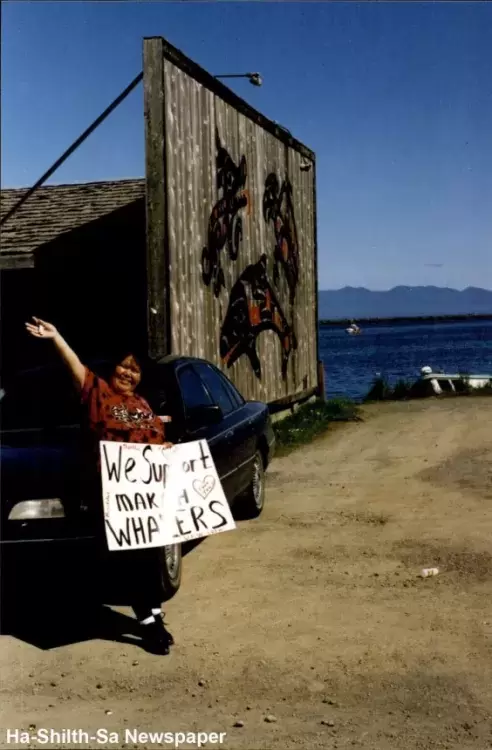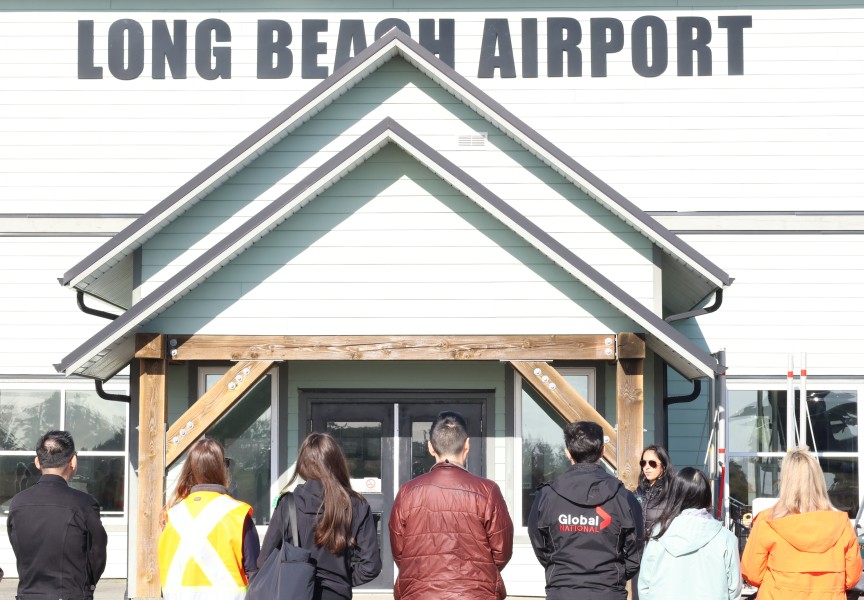Despite being able to harvest just one whale since the 1920s, the Makah are ready for the return of a regular hunt, as the sacred practice never ceased being taught within the Nuu-chah-nulth tribe.
During a recent interview with Ha-Shilth-Sa Patrick DePoe, a Makah Tribal Council member, was reluctant to give details of how exactly his tribe’s whalers would be undertaking the hunt if a proposal from the United States government follows through.
“I try to keep our practices close to heart and close to who we are, but I can reassure anybody that when the time comes we will be ready and that we do have people that can pass down that knowledge,” said DePoe. “There’s a very rigorous spiritual and cultural process that needs to take place before you step in that canoe and even begin the hunt. There’s a process that happens during the hunt and even after the hunt.
He did say that whales would be hunted traditionally, using a canoe, harpoon and group of specially trained individuals.
“The only difference is that we are being required by our partners here - that is the [International Whaling Commission] and the feds - to use a 50-caliber gun,” he said. “They believe it will be a more humane way to go about things.”
The tribe now awaits a federal court hearing on Aug. 12 in Seattle, where a judge will consider a proposal from the National Oceanic and Atmospheric Administration to allow the Makah to harvest three grey whales in even-numbered years and one whale in odd years from the waters near Neah Bay.
Announced on April 4, the federal proposal is the latest development in the tribe’s longstanding efforts to revive the legal hunt. So far, the highlight for the community occurred when a grey whale was hunted on May 17, 1999.
As a teenager DePoe remembers when the whale was brought into Neah Bay. He got into a canoe to help the whalers bring the cetacean to shore.
“It was an amazing feeling to be part of something historical like that and just feel that sense of cultural pride,” he recalled. “Your heart was just full. It was a beautiful moment.”
The Makah are the only Indigenous people in North America to have whaling rights clarified in a treaty. The 1855 Treaty of Neah Bay defines the right “of taking whales” as part of this legal agreement with the United States government.
Although the 1999 hunt was approved by the NOAA and International Whaling Commission – which both required the use of a high-calibre rifle for the final kill – continuing the practice was stalled when federal authorities required a waiver under the Marine Mammal Protection Act. The NOAA is now proposing that the Makah be granted an exemption from the whaling moratorium for “ceremonial and subsistence purposes.”
Whaling ceased on the North American Pacific nearly a century ago, after the commercial harvest depleted some species to near extinction. But over the following decades grey whales have rebounded, with the NOAA reporting that the Eastern North Pacific population has grown to 27,000.
“The most recent stock assessment for ENP gray whales found in 2014 that up to 624 gray whales could be removed from the population without affecting its long-term sustainability,” stated the United States government department in a media release.
Although DePoe has heard support from Indigenous communities across the United States, opposition has surfaced. In recent years this has included the Sea Shephard Conservation Society, an organization started by Captain Paul Watson, who co-founded Greenpeace. Sea Shephard did not respond to Ha-Shith-Sa’s requests for comment, but in 2015 the society announced it was exploring legal action to stop the Makah whale hunt.
“Tradition and culture must never be a justification for the killing of whales and dolphins or for violating international conservation law,” stated Sea Shepherd.
DePoe believes some opponents could change their stance after learning more about the status of gray whales.
“I would hope that people could look at the actual information rather than just base their decision on emotion,” he said.
The Makah have almost 2,700 registered members, including 1,160 who live on-reserve at Neah Bay. Last year household surveys revealed a widespread interest in bringing whaling back to Makah life, as 80.4 per cent of respondents cited the desire to reintroduce whale oil into regular use, while 95 per cent indicated support to revive the hunt.
“This is something that was part of our diet for over 2,000 years and then it was just stopped,” said DePoe, adding that although the practice was on hold for nearly 70 years, whaling has continued to be recognized in Makah culture. “This is something that’s been passed down from generation to generation. It was there in 1922, 1923 when we voluntarily stopped whaling, it was there in ’99 when we continued and it’s still there today.”







